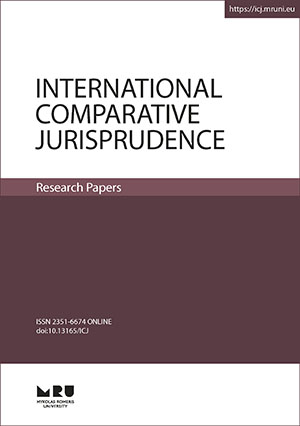INVESTMENT COURT SYSTEM OF CETA: ADVERSE EFFECTS ON THE AUTONOMY OF EU LAW AND POSSIBLE SOLUTIONS
INVESTMENT COURT SYSTEM OF CETA: ADVERSE EFFECTS ON THE AUTONOMY OF EU LAW AND POSSIBLE SOLUTIONS
Author(s): Simas GrigonisSubject(s): EU-Legislation
Published by: Mykolas Romeris University
Keywords: Investment Court System; ISDS; autonomy of EU law; CETA; CJEU;
Summary/Abstract: The Court of Justice of the European Union (CJEU) has recently assessed the compatibility of the reformatory Investment Court System (ICS) of the EU’s trade agreement with Canada (CETA). In the Opinion 1/17, the CJEU ruled the ICS mechanism to be compatible with EU law. This article provides a comprehensive critical assessment of the ICS mechanism and its potential adverse effects on uniform interpretation of EU law. It is proposed that, despite the favourable assessment of the CJEU, the ICS mechanism could result in indirect negative effects on the uniform interpretation of EU law and the autonomy of EU legal order. Involvement of the CJEU in the proceedings of the ICS mechanism is suggested as a possible option to resolve all the incompatibilities of the ICS with the autonomy of the EU legal order, and to ensure the CJEU’s exclusive right to interpret EU law.
Journal: International Comparative Jurisprudence
- Issue Year: 5/2019
- Issue No: 2
- Page Range: 127-141
- Page Count: 15
- Language: English

